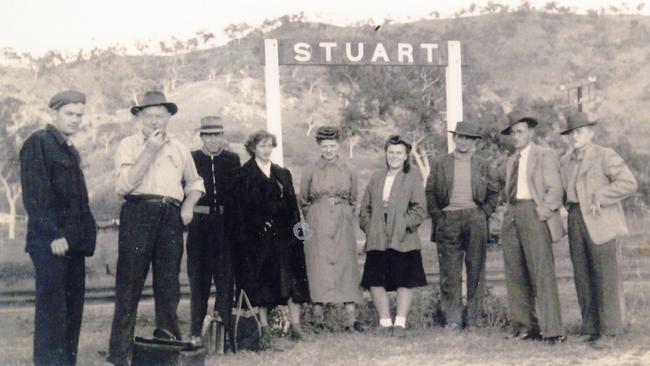Michael McGuire: As Australia’s population hits 25 million, the argument should be about planning for more people
RACISM is defining a person’s worth by where they or their parents were born — but that’s not the biggest issue we’re facing as we hit 25 million people, writes Michael McGuire.
When we wake up on Wednesday, there will be 25 million of us.
Though if you listen to screaming ninny panic merchants such as Andrew Bolt, there is no “us” anymore.
Which feels odd. Suddenly I feel adrift in a vast godless universe with no tether to the nation that has looked after me for the past 37 years.
And if there is no “us”, does that leave only “me’’? Or “I”?
And, more importantly, am I still allowed to cheer for “us’’ in the World Cup? Especially when the Socceroos are full of players with ethnic connections. Do I have to support “them” instead?
But of course, I would say that.
I am, after all, part of the problem. One of the “tidal wave’’ of immigrants that is so polluting fair old Australia.
Actually, I might be a double immigrant. Born in Scotland, with grandparents from Ireland and England. I’m not sure where I’ll end up when the “go-back-to-where-you-came-from’’ brigade finally get their way.
Like many immigrants, it took a while to settle into the Australian way of life. For a while, we were “clustering into tribes’’.

We would be invited to the Caledonian Society, listen to bagpipes, talk to each other in Scottish accents, dream of Irn-Bru (a carbonated drink) and constant drizzle and play soccer on the weekend. Another admission, it took a while for me to accept that Australians called the game of football, soccer. “Wogball’’ was even more puzzling.
Of course, I made efforts to be more Australian, but I was terrible at cricket.
Still, immigration is a serious issue and needs to be discussed in a serious fashion.
About 240,000 people arrived last year. That accounted for about 60 per cent of Australia’s population growth. That added about 1 per cent to the nation’s population. As a percentage of the population as a whole, this is not an unusual number historically. In 1950, there were about 8.2 million of us and the net overseas migration figure was about 153,000, or 1.9 per cent. In 1981, the year I arrived to contribute to the destruction of “us”, there were 111,000 migrants in a population of 14.9 million. That’s about 0.75 per cent.
It’s not racist to call for a reduction in immigration. It’s a debate worth having.
But it is racist to define the worth of whole segments of the Australian population solely by where they were born or where their parents were born.
The numbers are also only part of the issue. More than 25 million Australians is not in itself a problem.
The bigger issue is a failure to plan for 25 million Australians. People complain of crowded cities, congested roads, struggling schools, house prices, packed hospitals and unreliable public transport. And fair enough.
But these are not problems caused by immigration — governments know roughly how many people will arrive in a given time period, whether a year or a decade — but instead it represents a failure of public policy. A failure to prepare for a bigger, modern Australia.
There is also scope to move migrants around the country. Sydney and Melbourne are feeling the pinch but South Australia suffers from perennial low population growth and that is regarded as one of the prime reasons our economic performance has traditionally lagged the rest of the nation.
Migration is an economic necessity. A report released by the Federal Treasury Department in April found the annual migration intake added one percentage point to gross domestic product each year for 30 years and a lifetime tax contribution of almost $7 billion. Migration, it found, had also lifted productivity by 10 per cent and improved the workforce participation rate.
Which is why it’s sensible for Steven Marshall to try to have SA classified as a special case when it comes to migration so we can bring more of the buggers here.
Australia has been an immigrant nation since 1788. And it has been a highly successful one and will continue to be well into the future.
Don’t let “them” tell “us” any different.
